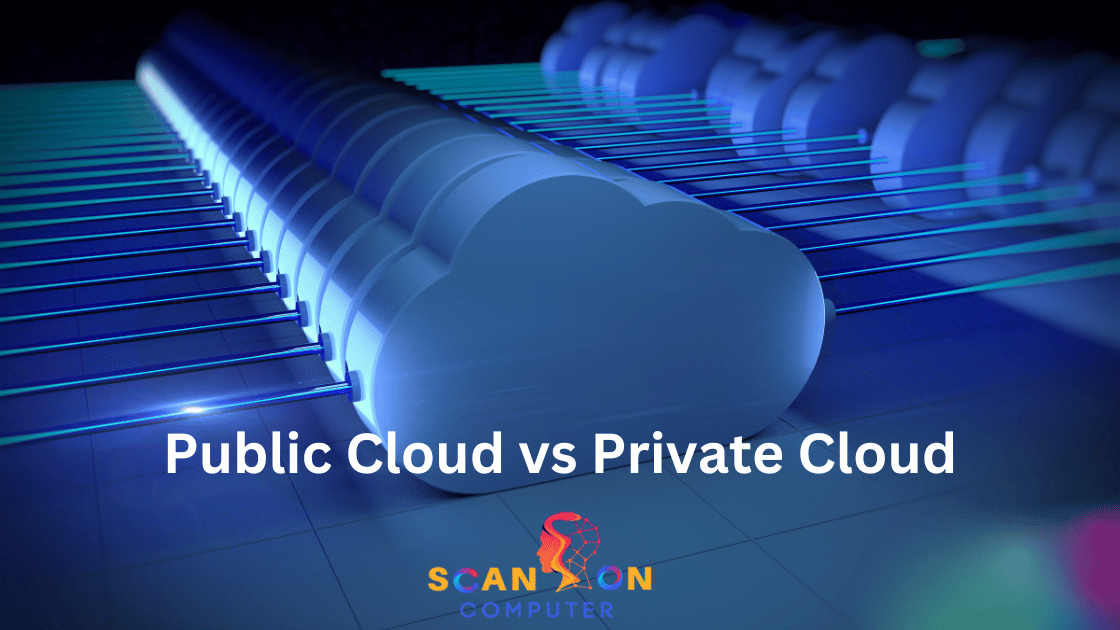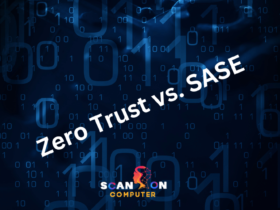Private cloud deployments typically require a larger initial investment, but can provide greater security, customization and performance than public clouds. They can host an array of business applications like web-based email, online storage and application testing – as well as increasing scalability by optimizing infrastructure resources to each workload and shifting workloads between servers as needed.
Private clouds offer enhanced control, security, and customization – ideal options for large businesses. However, their initial cost can be higher and require dedicated IT staff for management.
Staying abreast of security updates can be challenging, but many private clouds offer managed services to simplify this task.
Public Cloud vs Private Cloud
Public clouds offer organizations an affordable pay-as-you-go service model, enabling them to expand or contract as required, with seamless backup and recovery solutions, saving both time and money on hardware maintenance.
Numerous large public cloud providers offer redundant data centers with trained personnel available 24/7 for troubleshooting issues, providing organizations with an additional layer of reliability for business-critical applications.
Public clouds offer low price points that make them accessible for most companies, making them an affordable solution. As your application or workload expands, the cost per virtual machine (VM) may quickly escalate as vendors add margins onto each service they sell – this phenomenon is known as the Tipping Point and may lead to significant expense for certain businesses.
What is a Public cloud?
Public clouds are hosted by third-party cloud service providers and offer various types of services, including software as a service (SaaS), platform as a service (PaaS) and infrastructure as a service (IaaS). Public cloud environments are ideal for businesses needing temporary computing power; accessing and paying for the resources they need allows companies to avoid investing in equipment that might go unused, as well as maintenance requirements on-site.
Public cloud services offer another advantage: location independence. Since they can be accessed over the internet, this makes them perfect for organizations supporting employees at different work locations.
Public clouds tend to be less costly than private cloud solutions due to cloud service providers’ responsibility of overseeing and managing data center maintenance; this enables user organizations to save money by not needing to invest in hardware and pay utilities such as electricity and cooling directly themselves. Furthermore, public clouds typically offer greater security due to having more resources and expertise dedicated to handling security.
What are public cloud deployments?
Public clouds are IT infrastructures that enable you to scale up or down IT resources on demand, typically through pay-as-you-go models; you only pay for computing power you use, hosted on servers owned by the provider and shared among multiple users.
Public clouds have become an increasingly popular solution for businesses that wish to minimize IT infrastructure investments, saving both money and space on hardware, software and space purchases. They also reduce maintenance costs as there is no longer any need to manage servers directly.
Public cloud solutions can be found from various vendors. A handful of these vendors also provide hybrid cloud services that enable organizations to mix private and public environments, making this approach ideal for large enterprises that want to leverage cloud computing for both critical and non-critical workloads. Hosting sensitive apps or data in private environments while using public clouds for non-sensitive workloads maximizes IT efficiency while increasing overall IT efficiencies.
What is a Private Cloud?
Private cloud solutions provide businesses with greater control and security over their infrastructure and data, unlike public clouds where resources are shared among multiple customers. This may be particularly important when meeting stringent compliance and security standards such as financial services, healthcare or government agencies.
Private cloud environments, whether hosted on-premises or with a third-party provider, allow organizations to take advantage of self-service, scalable infrastructure and applications deployed without major upfront investments in IT environments dedicated to IT use. They also allow cost control through flexible licensing arrangements, automation capabilities and tools that help organizations track usage.
Businesses can leverage complex cloud services like machine learning and IoT initiatives to meet business requirements, but doing so often requires additional hardware that drives up IT costs and complexity for deployment and management of advanced technologies such as machine learning or IoT projects. Private clouds allow organizations to control deployment and configuration of these technologies to ensure they align with business requirements precisely.
What are private cloud deployments?
Private cloud deployments are specialized versions of cloud computing environments designed specifically to serve a single organization. They may be hosted either on-premises or by third-party data centers and offer greater control and security over data and infrastructure – which may prove especially helpful to companies needing to comply with regulations like HIPAA or PCI.
Private clouds offer improved performance since resources aren’t shared among multiple users, as well as greater flexibility to scale services up or down when necessary. Furthermore, they may provide better support for both traditional and cloud-native applications.
Many enterprises maintain an array of legacy business applications as well as cloud-native ones, which require support through a common operational model and management console. A private cloud can help support both by providing a consistent operational model with simplified management console, while at the same time helping reduce maintenance requirements, staff with specialized IT skills, hardware access restrictions and increased flexibility by enabling you to move workloads between public cloud or hybrid cloud environments when desired.
Public vs Private Cloud Advantages
Private clouds offer businesses higher performance. Their dedicated resources eliminate manual tasks and IT expertise necessary for infrastructure management, freeing them up to focus on business priorities while increasing developer productivity. Private clouds also offer deep visibility with monitoring, chargeback reporting and logging capabilities to track infrastructure usage; as well as fast deployment, operation and scaling of infrastructure and applications for faster operations while increasing control and security over data.
Private clouds offer greater compliance in highly regulated industries that demand stringent compliance practices, as their architecture offers greater levels of isolation and access control for data.
Businesses have two options for setting up private clouds: either their own internal deployment, or outsourcing it to a managed service provider. An internal private cloud is ideal for organizations without their own data centres or who lack the funds to maintain their own hardware; whereas hosting via an outside provider requires significant upfront investments as well as reduced flexibility that could potentially lock-in providers if rates increase over time.
Public vs Private Cloud Disadvantages
Public cloud services offer many benefits, including high-level security, flexible workload elasticity, improved backup systems and fault resiliency. Unfortunately, they can also be challenging to set up and maintain successfully; incorrect configuration can leave systems vulnerable to software bugs, hardware failures and lack of IT staff support.
Private cloud solutions give more control, but can be expensive due to the need for high-end hardware, utilities to ensure uptime, adequate cooling systems and licenses for an entire enterprise. In addition, private clouds may be vulnerable to failures caused by construction crews cutting fiber lines or malware attacks.
Hybrid cloud solutions combine the advantages of both models into one cost-effective and secure platform that meets unique business requirements. Hosted private clouds such as Flexential provide organizations with this opportunity.
Conclusion
Decisions between public and private cloud depend entirely upon your organization’s specific needs and requirements. Both have advantages and disadvantages, and ultimately it comes down to what works best for your business. Private clouds tend to offer greater security, scalability and control while public ones offer cost savings and ease of deployment – however with hosted private clouds like Flexential’s hosted private solution you get both features simultaneously; dedicated resources while still scalability and easy deployment!
Private clouds tend to be more costly than public ones, but the investment can pay dividends over time. A private cloud environment offers greater customization and flexibility when supporting legacy apps, cloud native apps, container orchestration services and regulatory compliance standards that would otherwise be difficult or impossible to meet via multi-tenant public clouds; making private clouds the go-to choice for organizations needing to comply with data sovereignty laws or other regulations.











Leave a Reply
View Comments